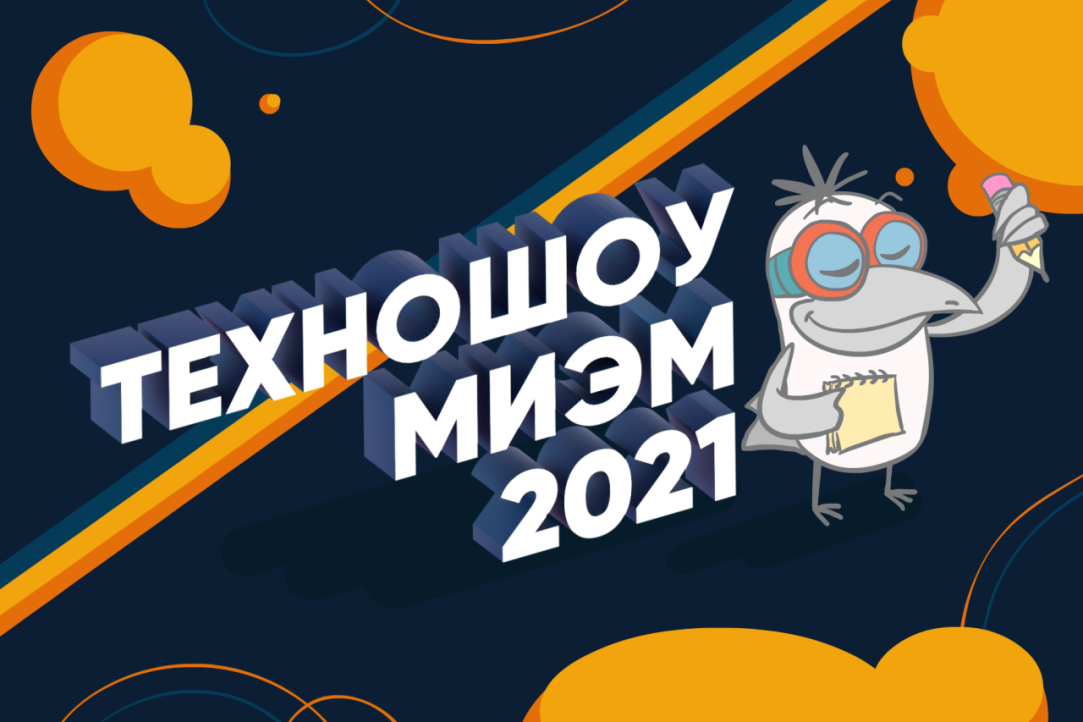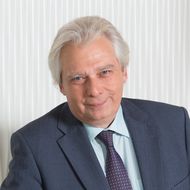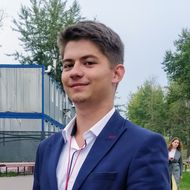MIEM Holds Its Annual TechnoShow in an Updated Format

This year, the MIEM TechnoShow was held in a mixed online-offline format. The final key annual event of the MIEM project cycle featured 60 student team works. Another distinctive feature of this year’s TechnoShow was the large number of customer companies operating in different industries and economic sectors. For more details, read our report below.
The MIEM TechnoShow is the final event of students’ project activities. Traditionally, it takes place at the beginning of summer, after students have successfully defended their projects. In 2021, the TechnoShow was held for the third time, and it is now safe to conclude that the updated format is becoming a fixture of the event.
In 2019, the pilot version of the TechnoShow was an offline exhibition of the best student projects gathered and displayed in a single space of the technological showroom at the MIEM building. However, last year the organizers had to arrange a videoconference due to the coronavirus pandemic.
On June 5, 2021, the event took place in a mixed format: with the guests attending online, the meeting itself was broadcast live from the MIEM media centre. Participants included guest speakers from the project teams, experts, customer companies, teachers, and MIEM and HSE top management.
As always, the organizers did their best to preserve the original essence for which the event was conceived—the atmosphere of professional, friendly, and informal interaction among participants, guests, and students. For that reason, a showroom of the projects housing the teams’ chat forums was open during the entire event on top of the live broadcasting. Everyone could talk to students to find out the details of their projects, ask questions, formulate expert opinions, and give recommendations.
This academic year, MIEM invited second-year students to participate in project activities, so the total number of projects increased considerably. Therefore, more projects were presented in the TechnoShow programme—60 team works located in 30 chat forums and divided into 7 topical pavilions, each of which represented the specific areas of educational and research project activities conducted at MIEM.

Veronika Prokhorova, Deputy Director, HSE MIEM
Over the past three years of project activities, everybody at MIEM—students, teachers, and employees—have realized that projects facilitate effective teamwork and successful results. This is an essential change—we all understand that this is very helpful for all of the project stakeholders. This change in the mindset is probably the most important of our achievements.
The project areas covered both projects traditionally implemented by MIEM and entirely new ones, including developments of business solutions. It is worth noting that some traditional areas generated great interest due to the rapid development of the real sector in the Internet of Things, smart infrastructure, telecommunications, medicine, cyber security, EduTech, etc.
Everyone who visited the showrooms could go on excursions guided by MIEM experienced teachers. The visitors appreciated the fact that the projects were both practice-oriented and interdisciplinary, requiring a wide range of knowledge from the project team for successful completion.

Igor Agamirzian, Vice President, HSE University
I am a programmer by education, but if I was a student and had to choose the most interesting project for myself, I would opt for something about cyber physical systems or the Internet of Things. Today computers are all around us, so sometimes we don’t even notice them. I think it is now more interesting to address the challenges of integrating computers into operable and user-friendly systems than just dealing with programming, as the latter has recently become an ordinary industrial job.
Developing its own digital ecosystem is a separate area of MIEM project activities. This ecosystem is aimed at solving a wide range of tasks, the most important of which is to facilitate the educational process and make it more convenient for both teachers and students, while increasing the efficiency of the network communications. Therefore, a number of student projects focus on developing the existing MIEM elements and mechanisms of a single digital environment as well as designing new ones.
Consequently, another task is to popularize the MIEM educational programmes by recording online courses and lectures and creating visual content for the target audience of existing and potential students. A lot of work has been done over the past two years. Most importantly, a full-scale TV-studio was opened to record videos and broadcast them live using network communication technology. A project team of students was established at the beginning of this academic year. The team is able to solve all technical, scenario, and production tasks, thereby allowing them to provide a complex continuous three-hour live stream of the main broadcast.
Another important feature of the TechnoShow is the large number of participating customer companies operating in different industries and economic sectors. Many of these companies are partners of the event, including INFOWATCH, Webinar, Mail.ru Group, Sberbank, Sputnix, SCANEX, CROC. Representatives of some companies participated in the event as speakers in the live stream from the studio.
In his welcome address, Evgenii Krouk, Academic Supervisor and Director of MIEM, emphasised that the TechnoShow is a particularly special event for students. Although exam anxiety is over, the event sparked a competitive spirit. The guests voted for the Audience Choice Award, and the winning project was ‘Remote Expert Support Using Augmented Reality’. The project was commissioned by General VR Research, an integrator of industrial 3D/VR/AR/MR solutions.
Denis Pozdnyakov, a student of the Master’s programme ‘Supercomputer Simulations in Science and Engineering’, told us about his project that won the Audience Choice Award. Denis is the team leader of the project (another team member is Artyem Evsikov, a second-year student of the programme ‘Information and Communication Technologies and Systems’).

Denis Pozdnyakov, Master student, HSE MIEM
The technology we developed would be helpful for the companies that specialize in high quality maintenance of expensive, complex, and rare equipment,’ he said. Such equipment often requires expert maintenance support in the course of operation. This support can be provided via a video call using mixed reality (MR), where real and virtual worlds are merged so closely that digital objects are perceived as part of physical reality.
The customer communicates with the expert via special AR smart glasses. The glasses work based on the project’s technology, which allows listening to the expert’s instructions and perform them simultaneously, as both the mic and the speakers are installed inside the glasses and the customer doesn’t have to hold them in his or her hands. Moreover, the glasses are equipped with special cameras that create a 3D copy of the room and identify the location of the person in space. This technology is very convenient and cost-effective as it provides remote contact with the expert and does not require any offline support.
The project was developed at the MIEM 3D Visualization and Computer Graphics Laboratory. Alexey Rolich was the project’s Academic Supervisor, whose help was highly appreciated by Denis and his team. ‘First of all, Mr. Rolich helped us obtain the necessary equipment when the university was locked down so that we could work on the project remotely,’ Denis said. ‘Moreover, he was appreciative of our busy schedule and assisted us as much as he could in meeting the deadline. And finally, he gave us an opportunity to work with a real customer rather than develop a spherical project in vacuum.’

